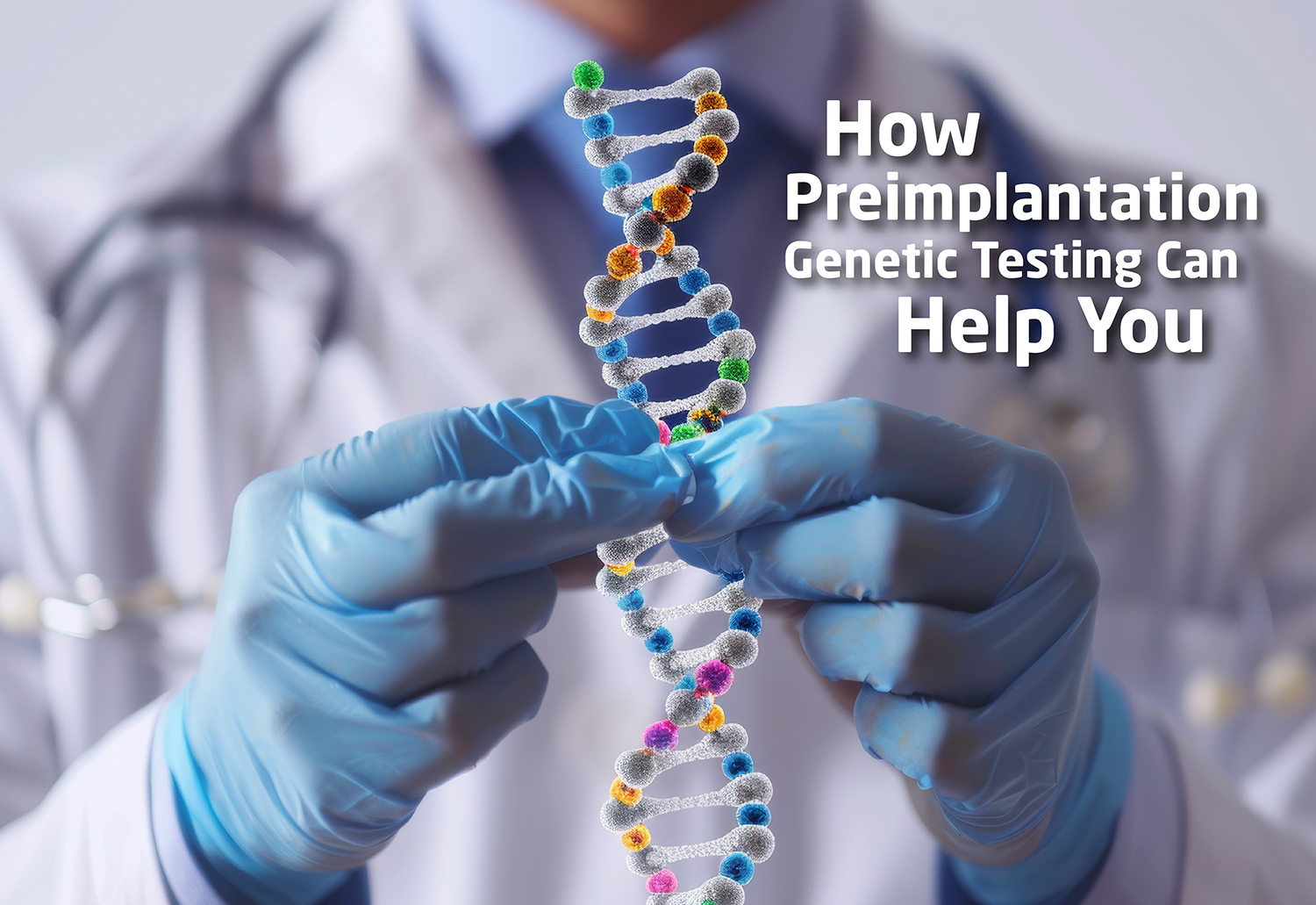How Preimplantation Genetic Testing Can Help You
It may take you by surprise to know among the prevailing causes that an embryo transfer does not result in a pregnancy test because of abnormal embryo genetics. Preimplantation genetic testing (PGT) is a safe technique to make sure that the embryo selected for transfer has the correct number of chromosomes, thereby reducing the chances of a failed IVF cycle and reducing the chance of miscarriage.
Read More: What is the optimal endometrial thickness in IVF?
What is Preimplantation Genetic Testing?
Preimplantation Genetic Testing (PGT) screens embryos for genetic issues before implantation during IVF. It checks for abnormal chromosomes and inherited genetic conditions, enhancing the chances of a healthy pregnancy. For couples with a history of genetic disorders or multiple failed IVF cycles, PGT detects the healthiest embryos. This lowers the threat of miscarriage and gives parents a sigh of relief, knowing their baby is less likely to have serious genetic disorders.
Why PGT Might Be Right for You
Opting for Preimplantation Genetic Testing (PGT) can greatly improve your fertility journey. PGT offers several benefits including these:
- Increases your chances of a healthy pregnancy by selecting the healthiest embryos
- Reduces the risk of miscarriage by catching genetic abnormalities early
- Helps avoid passing on genetic disorders, particularly if you have a family history
- Lowers emotional and financial stress by decreasing the likelihood of repeated IVF cycles.
PGT allows you to take mindful steps towards a successful pregnancy and a healthier future for your baby.
What happens in the PGT test procedure?
Patients should be aware of the major benefits and limitations of PGT before hastily jumping decision. It’s important to choose whether to include PGT in your
IVF plan well before starting your cycle.
If you opt for PGT, you’ll need to take an IVF round to retrieve eggs and form embryos. We observe these embryos in our lab for 5 days. At this point, we take out a few cells from each embryo and send them to specialized labs for PGT.
While specialists conduct PGT on the DNA from these cells, we cryopreserve the embryos in the lab. You receive the PGT results, usually within 1-2 weeks. If any embryos are suitable for transfer, we help you schedule a frozen embryo transfer with your doctor.
What Conditions Can PGT Detect?
A preimplantation genetic test is crucial to detect these conditions which may otherwise have an adverse effect:
- Chromosomal abnormalities: Conditions like Down syndrome, which is caused by an extra chromosome 21.
- Sex chromosome issues: Disorders such as Turner syndrome and Klinefelter syndrome, involving missing or extra sex chromosomes.
- Inherited genetic disorders: Conditions like cystic fibrosis, sickle cell anaemia, and Tay-Sachs disease.
By spotting these issues early, PGT gives a clear signal to make informed decisions and makes it more likely to have a healthy pregnancy.
What to expect after the PGT test?
After you get the Preimplantation Genetic Testing (PGT) results, you’ll need to make important decisions. The next steps involve choosing the best option for moving forward with fertility treatment. If the results confirm that some embryos are genetically healthy, doctors help to plan a frozen embryo transfer. This involves thawing the suitable embryos and implanting them into your uterus to start the pregnancy test process.
If the PGT results indicate that none of the embryos are suitable, discuss other options with your fertility specialist. This might include trying another IVF cycle or exploring alternative paths to parenthood. Doctors provide personalized tips and support throughout, making sure that you learn about each option and feel assured about your next steps.
At Ferticity IVF, we employ the best-in-class techniques for fertility treatments. Whether you’re looking for PGT or personalized guidance on your IVF journey, consult our experienced fertility specialists.

